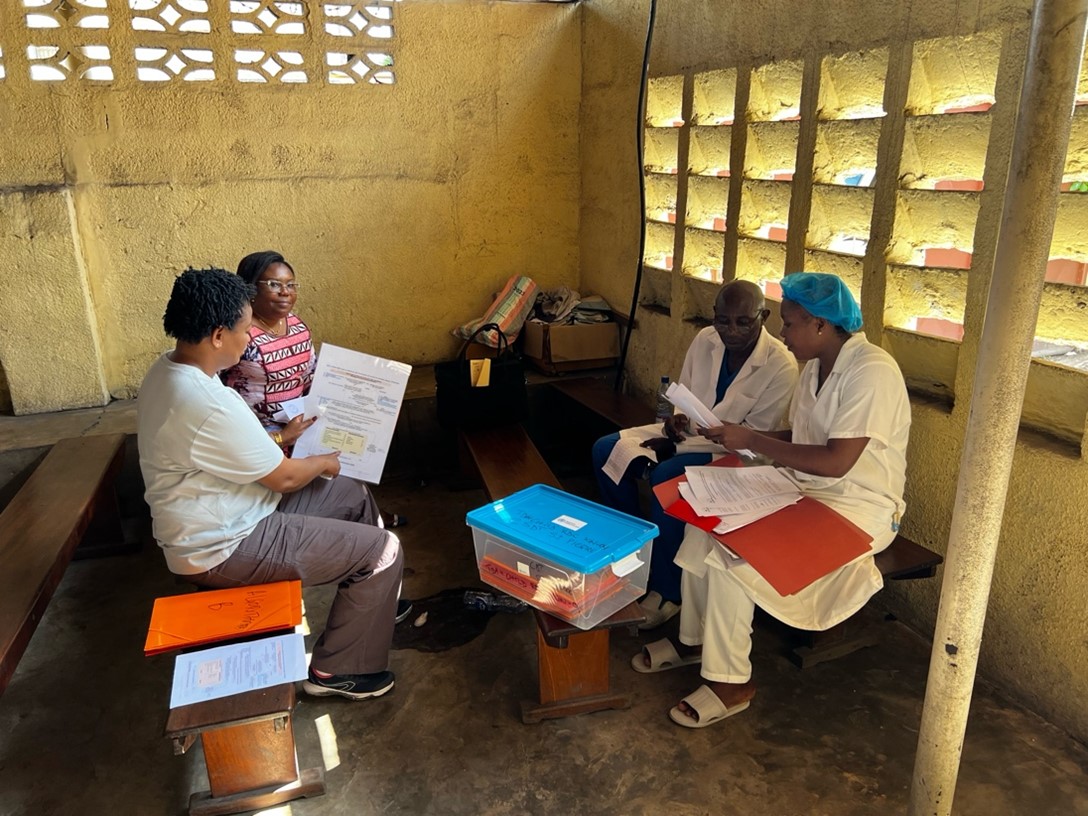Nigeria and the Democratic Republic of the Congo (DRC) are among the first countries to launch an evaluation of the performance, feasibility, acceptability, and impact of WHO treatment decision algorithms for pulmonary tuberculosis (TB) in children using the TDA4Child research package, developed by TDR and WHO.
WHO made an interim conditional recommendation on the use of integrated treatment decision algorithms (TDAs) to aid in TB treatment decision-making in children in the 2022 WHO consolidated guidelines on the management of TB in children and adolescents.
In March 2023, TDR in collaboration with WHO’s Global TB Programme, launched the “TB Treatment Decision Algorithms for Children” (TDA4Child) initiative, which includes a generic research package to support National Tuberculosis Programmes (NTPs) conducting operational research to evaluate the TDAs for pulmonary TB in children under age 10. These research projects should also generate data for informing the WHO Global TB guidelines.
Nigeria and DRC are countries with high burden of TB and important gaps in childhood TB detection. The NTP of DRC estimates that less than half of children and young adolescents with TB are diagnosed and notified each year, especially in children under age 10.
“Rates of diagnosis can be improved by implementing easy to understand and adapted algorithms to facilitate the assessment of children,” said Dr Urhioke Ochuko, NTP focal point for childhood TB in Nigeria.
“The introduction of treatment decision algorithms should trigger TB screening and diagnosis in children consulting for other reasons than TB,” said Dr Bibiche Kadima, NTP focal point for DRC. “There were instances where healthcare workers were not screening for TB because they were not sure how to do it. Now they can.”
Enrolment in the studies kicked off in November 2023 in both countries.

Reviewing the study material in Saint Pierre research site in Kinshasa. Credit: TDR/E. Papot
As of March 2024, 834 children under 10 years old with presumptive TB were enrolled in Nigeria across 24 sites and 564 in DRC across 15 sites in Kinshasa. Both countries aim to recruit approximately 1000 children.

Conducting supervision visits – Dr Ehiemene Goodluck (right) is discussing the data collection with the focal point at General Hospital Kwali in Federal Capital Territory, Nigeria. Credit: TDR/E. Papot
USAID has contributed designated funding for the development of the research package and supports the implementation of TDA4Child in Nigeria and in DRC.
The research package, including the master protocol, paper-based data collection tools is available at: https://tdr.who.int/activities/TDA4Child-initiative. Material covering the key study procedures and an electronic data capture system are also available upon request.
For additional information please contact Dr Corinne Merle.

